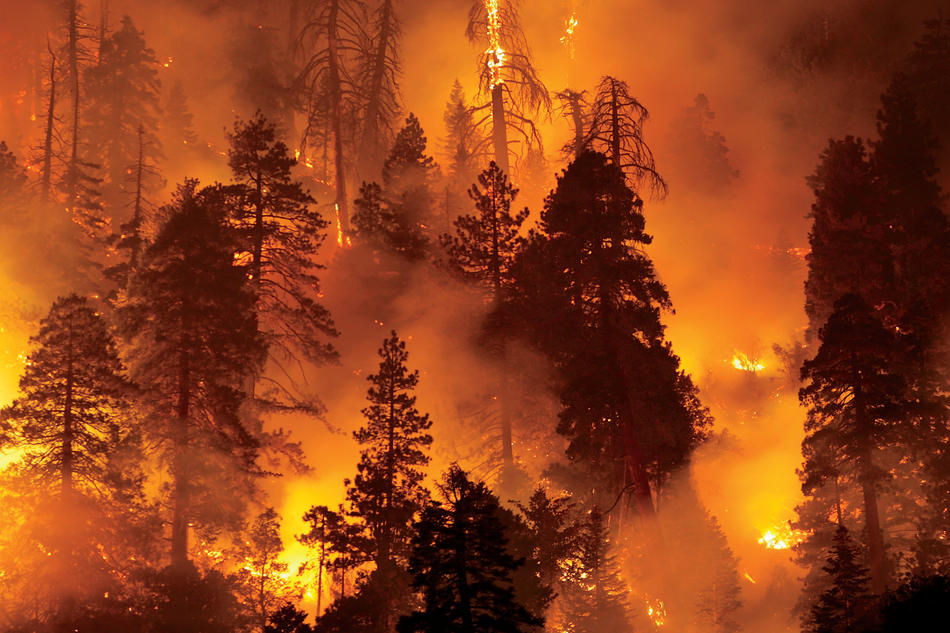- July 24, 2025
Trump Administration Undercutting FEMA as Climate-Driven Hydroclimate Whiplash Intensifying Floods, Droughts

In a world heating up rapidly largely due to the unchecked burning of fossil fuels, people across the country will be subject to more frequent and intense droughts and downpour events. Already this year, extreme rainfall led to deadly flash flood events in New Mexico, New York, Texas and the Washington, D.C. area. In fact, the National Weather Service (NWS) issued the most flash flood warnings in a single July day on July 14, and more flash flood warnings have been issued this year to date than in NWS’ 40 years of modernized record-keeping. At the same time, parts of the western and southwestern United States, including Arizona, Colorado, New Mexico, Oregon and Texas, are dealing with extreme to exceptional levels of drought.
In his latest blog post titled “‘Hydroclimate Whiplash’: How Extreme Rainfall and Drought Are Linked,” Dr. Marc Alessi, a climate attribution science fellow at the Union of Concerned Scientists (UCS), describes the science behind this increasingly common phenomenon called “hydroclimate whiplash”—a period of extremely dry followed by excessively wet conditions.
“Imagine the atmosphere as a giant sponge. It will absorb water until it reaches its limit. When the sponge is wrung out, the water it was holding will fall to Earth’s surface,” writes Dr. Alessi. “With fossil fuel-driven climate change, the atmosphere is warmer, so our atmospheric ‘sponge’ is much bigger. Since it’s bigger, it can hold more water without reaching its maximum holding capacity, allowing for longer periods of time with no rainfall. This results in more droughts. But when it finally does release that moisture, it unleashes much more water at once, resulting in more intense flash flooding.”
Given the heightened risk for climate and weather extremes, it’s imperative that the United States is ready to respond before, during and after disasters. Unfortunately, when hydroclimate whiplash hit Texas leading to the deaths of more than 130 people, the Trump administration was nowhere near prepared. David Richardson, acting Federal Emergency Management Agency (FEMA) administrator, is slated to appear before the U.S. House Subcommittee on Economic Development, Public Buildings and Emergency Management tomorrow to address the agency’s ability to respond to disasters, with the failings that occurred in Texas expected to take center stage.
In a new blog post, Shana Udvardy, a senior climate resilience policy analyst at UCS, chronicles why the terrible Texas flood tragedy was made infinitely worse by FEMA’s “dysfunctional, delinquent and irresponsible” response. Per her blogpost, the loss of essential FEMA staff and contractors, inept leadership, draconian budget restrictions even during emergencies, out of date flood maps, and the cost shift to local governments has coalesced to hamper effective disaster preparedness and response efforts.
Udvardy writes that FEMA’s response shows how the Trump administration’s plan will push the burden of disaster response and recovery to the states. “While ignorance of emergency management plays a role in the indefensible FEMA response to the Texas flooding, this is all part of President Trump’s plan that Secretary Kristi Noem is carrying out to the T. The sheer audacity to lie in the face of facts, destroy the good parts of FEMA that exist today, enact policies like the preparedness executive order that pushes response and recovery burden onto states (among other things), and stand up the politicized FEMA review council to gather cover for the policies the administration already knows it wants, is stunning.”
But what keeps Udvardy awake at night is Secretary Noem’s characterization of what happened in Texas: Americans should expect exactly this type of response from the Trump administration when future disasters strike. As Udvardy points out, this is a dereliction of the government’s responsibility to provide assistance when people are in peril.
To speak with Dr. Alessi, Udvardy or another UCS expert, please contact UCS Climate and Energy Media Manager Ashley Siefert Nunes via email at asiefert@ucs.org or by phone at +1 952-239-0199. UCS scientists and analysts have experience doing live and taped TV, radio and print interviews with local, state, national and international media outlets. Experts are also available for Spanish-language interviews.
Additional UCS blog posts from this and previous Danger Seasons are available here.

